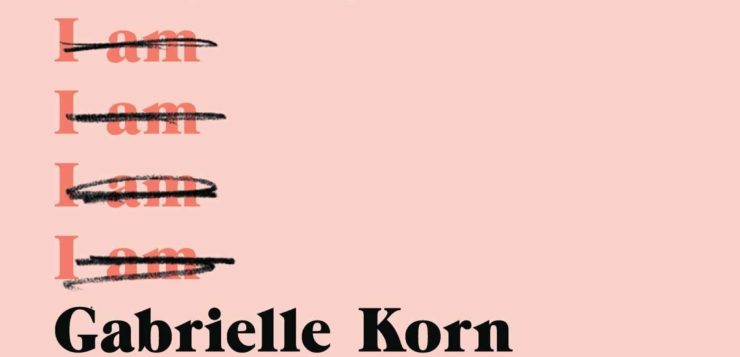 EVERYBODY ELSE IS PERFECT
EVERYBODY ELSE IS PERFECT
How I Survived Hypocrisy, Beauty, Clicks, and Likes
by Gabrielle Korn
Atria. 272 pages, $17.
Like many other little girls, Korn grew up with a deep interest in fashion and makeup—and a strong infatuation with women, a feeling that she thought every girl experienced. No one told her that this wasn’t so; she learned it slowly by watching others. She tried to pretend that she didn’t have those feelings and struggled to like boys. She even lost her virginity to a boy, but found it an empty, depressing act.
In a sweetly charming anecdote, Korn writes of meeting a woman in college who gave her the room to think she might be bisexual, and eventually the confidence to know that she was a lesbian. That woman was Korn’s first girlfriend, but not her last. Alas, readers don’t really get a lot of information on any other early love interests; instead, the author turns to her career—one that moves the reader along as if trapped inside a blender on high speed.
In her earliest years at Refinery29, Korn says that she found it awkward to listen to female co-workers’ talk about men when she didn’t feel comfortable talking about women. Indeed, she quickly discovered that she was the only lesbian on staff, and in time “this became a burden.” She didn’t like the feeling that she was a “gateway” for an exclusively heterosexual publication. Fortunately, she had the vision to see this as an opportunity to bring about change. With the approval of work peers, she revised the company’s style guide to include queer models in photo shoots and articles; inclusion of women of color soon followed.
Two years later, when Korn left Refinery29 to work at Nylon as the magazine’s youngest editor-in-chief, she took her activism and her aims for diversity with her. This work gave Korn the chance to make a lasting impact on the industry, and a lot of money—a point she discusses with tiresome frequency as her various struggles for bigger paychecks are exhaustingly chronicled—but the life she once envisioned wasn’t exactly what she got.
Readers who make it to this point may be retroactively frustrated to discover that the second half of this book is better than the first, as Korn turns again to her personal life. She writes first about her battles with eating disorders in pages that are brimming with blunt truth and honest sharing about suffering from anorexia-related conditions that are seldom discussed. She continues with delightfully personal backstage tales about the inner workings of the beauty and fashion industry. There are reports of sexual harassment, love, and relationships interwoven with thoughts on the industry, and how it must continue the advances she helped make for women of all races, sizes, ages, disabilities, and sexualities.
Terri Schlichenmeyer is a freelance writer based in Wisconsin.






